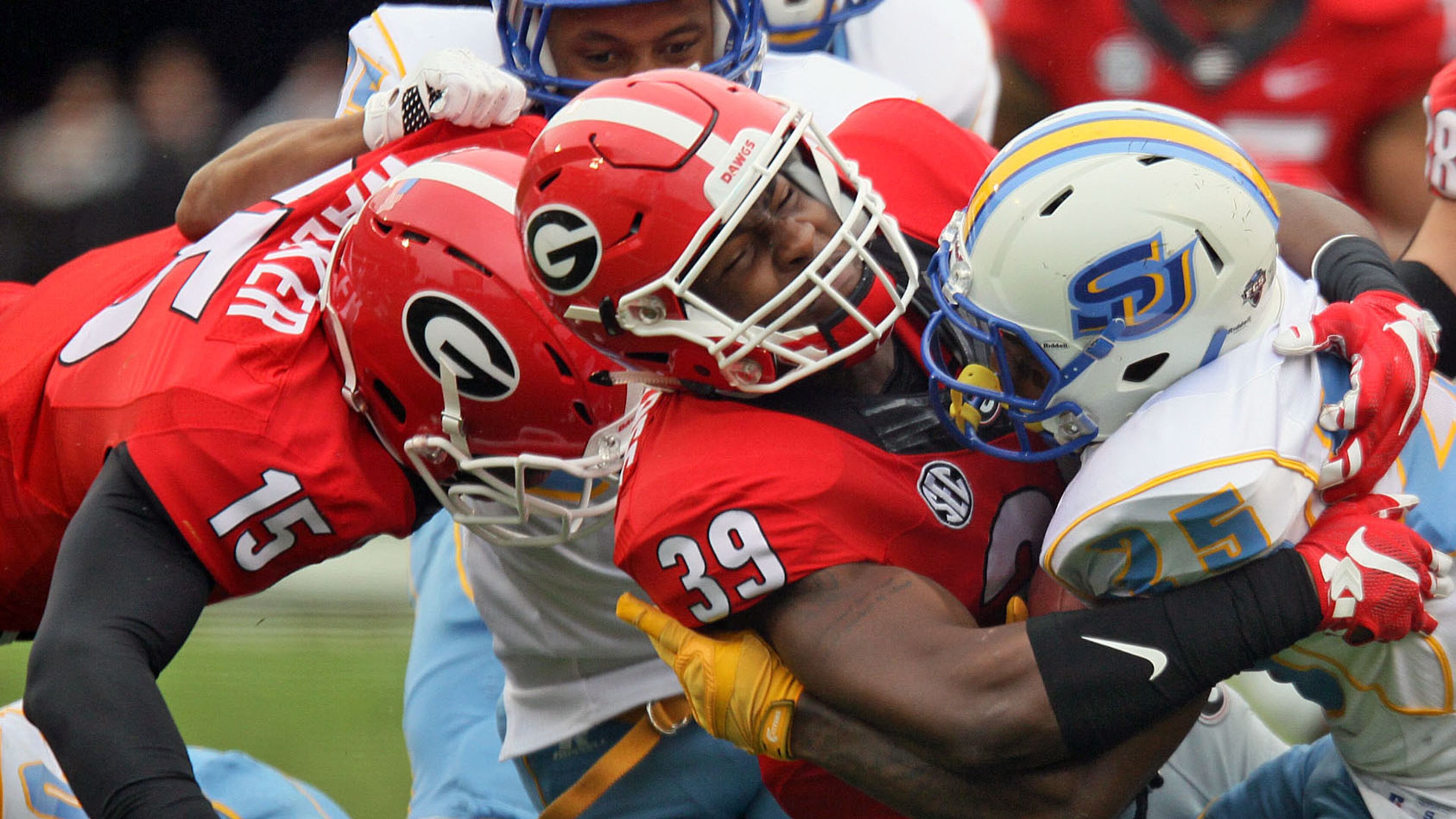UGA joins concussion monitoring program

All 19 of Georgia’s athletic programs will have an added layer of concussion monitoring following an agreement with California-based company SyncThink.
The neuro-technology leaders officially announced a partnership Monday with the University of Georgia Athletics Association. SyncThink had previously aligned with the NBA’s Golden State Warriors and the University of Notre Dame, among others.
Stanford neurosurgeon Dr. Jamshid Ghajar spent a decade developing the EYE-SYNC technology, which “uses a modified virtual-reality goggle to objectively measure and detect visual impairments in less than a minute,” per a press release. The headset wirelessly connects to a sideline tablet, which quickly relays the necessary information to medical professionals.
» Related: UGA had stopped tracking concussions
As ESPN.com's Stephania Bell noted last fall, the technology does not diagnose concussions. Rather, it helps staff members identify visual impairments typically associated with brain injuries, allowing them to make more informed decisions in the heat of the moment.
The University of Texas, the Pac-12 Conference and Massachusetts General Hospital are included on the list of other clients.
SyncThink CCO Scott Anderson called the partnership with Georgia and director of sports medicine Ron Courson a “great opportunity,” and that the Bulldogs should find plenty of uses for the technology.
“I expect we will see them do some interesting things with our solution in an effort to more comprehensively understand how to ensure their athletes are ready to perform at their best,” Anderson said in the press release. “Objectively measuring readiness is a new frontier and what we are all about.”
SyncThink employs former Stanford and current New Orleans Saints tight end Coby Fleener on its “athlete advisory board,” and he’s been a vocal proponent of the system.
“The biggest challenge to medical professionals and athletes working together is objectivity of tests,” Fleener told ESPN.com’s Bell last year. “With this technology, the medical staff can say, ‘Here are these objective results for this test.’ It’s a huge help to give the athlete confidence, not only about when to sit out, but also when to go back in.”
» Related: Concussions force Georgia junior to give up football
Concussions have been the subject of much debate — and legal action — in professional football over the past decade. Prevention and diagnosis have become key issues at all levels of the game.
SEC commissioner Greg Sankey helped push through a landmark NCAA rule in 2016 that gave "autonomous and final authority" to medical officials when deciding whether an athlete can return to the playing field after concussions and other injuries.
But that authority does not make it much easier for professionals to identify and treat concussions. SyncThink hopes to be the missing piece of the puzzle for Georgia and others.
“Onboarding such a prestigious program as University of Georgia is further example of using EYE-SYNC’s objective measurements of injury and performance as a best practice in the care of athletes and optimization of their training program” CEO Laura Yecies said in the press release. “We’re excited to continue working with top organizations adopting our platform as part of their athlete management protocol.”


